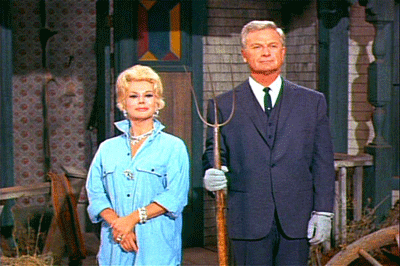Historical definition
Historians believe that the actual English word "romance" developed from a vernacular dialect within the French language meaning "verse narrative"—referring to the style of speech, writing, and artistic talents within elite classes. The word was originally an adverb of the Latin origin "Romanicus," meaning "of the Roman style." The connecting notion is that European medieval vernacular tales were usually about chivalric adventure, not combining the idea of love until late into the seventeenth century.[citation needed]
The word "romance" has also developed with other meanings in other languages such as the early nineteenth century Spanish and Italian definitions of "adventurous" and "passionate", sometimes combining the idea of "love affair" or "idealistic quality."
In primitive societies, tension existed between marriage and the erotic, but this was mostly expressed in taboo regarding the menstrual cycle and birth.[1]
Anthropologists such as Claude Lévi-Strauss show that there were complex forms of courtship in ancient as well as contemporary primitive societies. There may not be evidence, however, that members of such societies formed loving relationships distinct from their established customs in a way that would parallel modern romance.[2]
Before the 18th century, as now, there were many marriages that were not arranged – having risen out of more or less spontaneous relationships. After the 18th century, illicit relationships took on a more independent role. In bourgeois marriage, illicitness may have become more formidable and likely to cause tension.[citation needed] In Ladies of the Leisure Class, Rutgers University professor Bonnie G. Smith depicts courtship and marriage rituals that may be viewed as oppressive to modern people. She writes "When the young women of the Nord married, they did so without illusions of love and romance. They acted within a framework of concern for the reproduction of bloodlines according to financial, professional, and sometimes political interests." Subsequent sexual revolution has lessened the conflicts arising out of liberalism, but not eliminated them.
Anthony Giddens, in his book The Transformation of Intimacy: Sexuality, Love and Eroticism in Modern Society, states that romantic love introduced the idea of a narrative into an individual's life. He adds that telling a story was one of the meanings of romance. According to Giddens, the rise of romantic love more or less coincided with the emergence of the novel. It was then that romantic love, associated with freedom and therefore the ideals of romantic love, created the ties between freedom and self-realization.
David R. Shumway, in his book Romance, Intimacy, and The Marriage Crisis, states that the discourse of intimacy emerged in the last third of the 20th century and that this discourse claimed to be able to explain how marriage and other relationships worked. For the discourse of intimacy emotional closeness was much more important than passion. This does not mean by any means that intimacy is to replace romance. On the contrary, intimacy and romance coexist.[3]
The 21st century has seen the growth of globalization and people now live in a world of transformations that affect almost every aspect of our lives, and love has not been the exception. One example of the changes experienced in relationships was explored by Giddens regarding homosexual relationships. According to Giddens since homosexuals were not able to marry they were forced to pioneer more open and negotiated relationships. This kind of relationships then permeated the heterosexual population.
Shumway also states that together with the growth of capitalism the older social relations dissolved, including marriage. Marriage meaning for women changed as they had more socially acceptable alternatives and were less willing to accept unhappy relations and, therefore, divorce rates severely increased.
The discourse of romance continues to exist today together with intimacy. Shumway states that on the one hand, romance is the part that offers adventure and intense emotions while offering the possibility to find the perfect mate. On the other hand, intimacy offers deep communication, friendship, and long lasting sharing.
Popularization of love
The concept of romantic love was popularized in Western culture by the game of courtly love. Troubadours in the Middle Ages engaged in trysts—usually extramarital—with women as a game created for fun rather than for marriage. Since at the time marriage was a formal arrangement,[4] courtly love was a way for people to express the love typically not found in their marriage.[5] In the context of courtly love, "lovers" did not refer necessarily to those engaging in sex, but rather in the act of emotional loving. These lovers had short trysts in secret that escalated mentally but never physically.[6] Rules of the game were even codified. For example, De amore or The Art of Courtly Love, as it is known in English, was written in the 12th century. It lists such rules as "Marriage is no real excuse for not loving", "He who is not jealous cannot love", "No one can be bound by a double love", and "When made public love rarely endures".[7]
Some believe that romantic love evolved independently in multiple cultures. For example, in an article presented by Henry Grunebaum, he argues "therapists mistakenly believe that romantic love is a phenomenon unique to Western cultures and first expressed by the troubadours of the Middle Ages."[8]
The more current and Western traditional terminology meaning "court as lover" or the general idea of "romantic love" is believed to have originated in the late nineteenth and early twentieth centuries, primarily from that of the French culture. This idea is what has spurred the connection between the words "romantic" and "lover," thus coining English phrases for romantic love such as "loving like the Romans do." The precise origins of such a connection are unknown, however. Although the word "romance" or the equivalents thereof may not have the same connotation in other cultures, the general idea of "romantic love" appears to have crossed cultures and been accepted as a concept at one point in time or another.

